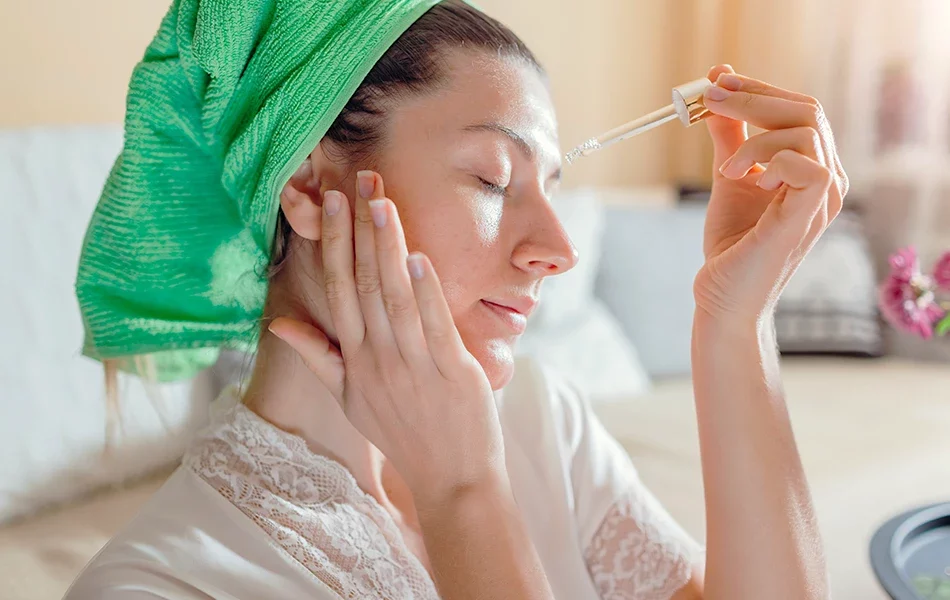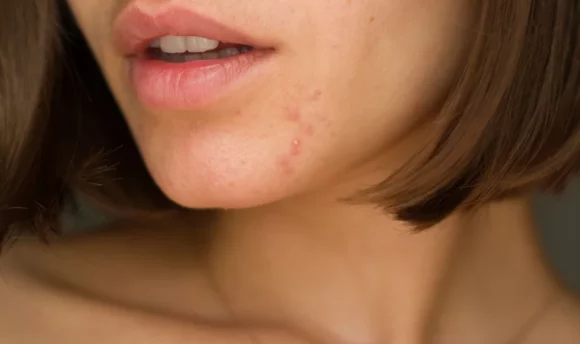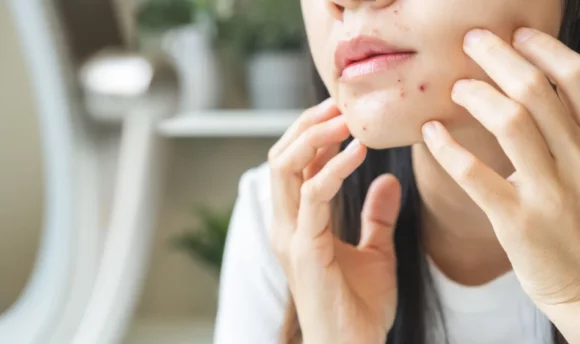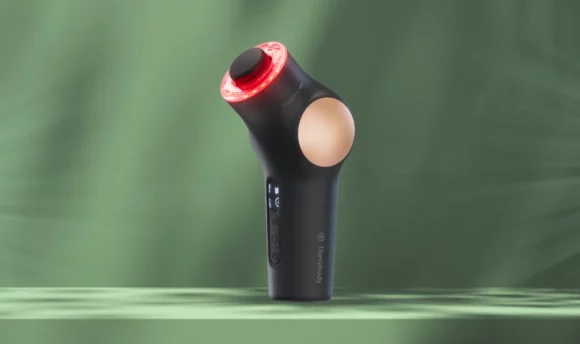Is Hyaluronic Acid Good for Acne? Benefits and Treatment Strategies
Everyone is talking about hyaluronic acid, but is it the right product for acne-prone skin? What are the benefits of hyaluronic acid, and can it improve your skin health?

Skincare products tend to have their moment. There is always a new product that garners the attention of skincare enthusiasts, with many branding ingredients as hero solutions to common skin concerns. Hyaluronic acid is one such product that is growing in popularity.
It’s favored for its hydrating, healing, and plumping properties.
If you suffer from acne breakouts and scarring, you might wonder if hyaluronic acid can help with treatment and prevention. Keep reading to discover if hyaluronic acid will help acne and what you can expect from adding it to your regimen.
Is Hyaluronic Acid Good for Acne, or Is It Just a Fad?
Hyaluronic acid can be an effective ingredient for people dealing with acne-prone skin, although it won’t work for everyone. It can help relieve common problems that trigger acne, including dryness, excess sebum production, and skin barrier dysfunction.
In addition, hyaluronic acid acts as an antibacterial agent, which can help stop bacteria from clogging your pores and triggering breakouts.
Incorporating hyaluronic acid into your routine may improve your overall skin’s appearance as it offers anti-aging, anti-inflammatory, hydrating, and restorative properties. Still, it’s not a miracle ingredient, and results may vary from person to person.
Does hyaluronic acid help with acne scars?
Hyaluronic acid may help to treat acne scarring as it makes your skin more flexible, and it’s known to promote and speed up wound healing. Hyaluronic acid-based fillers are proven to be an effective treatment for mitigating acne scars because they provide a filling effect.
What Is Hyaluronic Acid?
Hyaluronic acid is a naturally-occurring chemical. This clear substance is produced naturally by the human body and is present throughout human tissues, including the eyes, skin, and joints. Hyaluronic acid helps cushion, hydrate, and lubricate these tissues.
As you age, your natural hyaluronic acid production declines. Environmental factors like sun exposure can also speed up the process. Low hyaluronic acid levels can contribute to visible signs of aging, including the appearance of fine lines and wrinkles.
The good news is you can add hyaluronic acid to your skincare regimen by purchasing topical hyaluronic acid. You can find it in various cosmetic products, such as moisturizers, lotions, and serums.
Benefits of Hyaluronic Acid for Skin
From healing to hydrating benefits, hyaluronic acid can boost your overall skin health. Here are five reasons for adding hyaluronic acid to your skincare routine, even if you have acne-prone skin.
#1 Reduces irritation
People who use products containing hyaluronic acid as an active ingredient may benefit from less irritation. It interacts with cell surface receptors that play a role in the inflammatory process, making hyaluronic acid capable of reducing inflammation.
Overly dry skin can result in irritation, including skin rash dermatitis, which causes skin swelling and inflammation. The most basic treatment for dermatitis is to keep the skin hydrated. Since hyaluronic acid draws moisture into the skin, it can help counter dryness and alleviate irritation.
The anti-inflammatory effects of hyaluronic acid are also good for acne, as inflammation occurs when bacteria block the pores, causing redness, irritation, and blemishes.
#2 Prevents wrinkles
Another reason people swear by hyaluronic acid is that it helps prevent and reduce the appearance of wrinkles. A 2014 study found that hyaluronic acid in topical form decreased the depth of wrinkles by up to 40% and boosted skin hydration and firmness.
Skin elasticity describes your skin’s ability to bounce back and remain plump and healthy. But skin naturally becomes less elastic with age, leading to the development of fine lines and wrinkles. Hyaluronic acid can improve skin elasticity, making your skin more soft and flexible.
The decrease in hyaluronic acid naturally produced by your body also contributes to wrinkle formation. Studies show that hyaluronic acid dermal fillers counteract these signs of aging by restoring volume and increasing natural collagen production.
#3 Hydrates the skin
Hyaluronic acid is best known as a hydrating ingredient because of its powerful ability to retain moisture. As a humectant, hyaluronic acid works by drawing moisture deep into the outer layers of the skin. It locks in water, alleviating dry skin and contributing to a glowing complexion and a more youthful appearance.
Hydration can support acne treatment, as drier skin can trigger excess oil production from the sebaceous glands, which leads to frequent breakouts.
#4 Repairs the skin barrier
The skin barrier is the outermost layer of the skin. It’s responsible for keeping water in and warding off external threats like chemicals, infection, and allergens. A broken skin barrier is less able to maintain healthy skin cells and becomes more vulnerable to everyday aggressors.
Hyaluronic acid helps restore the barrier by penetrating deep into the skin to increase moisture and help it hold onto water more efficiently.
#5 Improves skin texture
Regardless of skin type, the elevated moisture content that hyaluronic acid provides can improve the texture by hydrating, smoothing, and firming. Furthermore, the increased moisture can combat acne by helping to rebalance the skin’s natural oils. Its ability to combat acne, dry patches, scarring, and wounds contributes to skin that looks and feels healthier.
Potential Side Effects of Hyaluronic Acid
Hyaluronic acid is considered safe to use, including for pregnant and breastfeeding women. Since it’s a natural substance in your body, it’s less likely to cause adverse effects. That said, there is always the potential for some people to experience allergic reactions or other side effects.
Temporary side effects are more likely to occur when you use hyaluronic acid via injection, such as redness, swelling, itching, and bruising.
Can hyaluronic acid cause acne?
Some people may develop acne breakouts after using hyaluronic acid products. However, it’s difficult to determine if this is due to the hyaluronic acid itself or other ingredients in the formula if using creams and serums.
Skin is unique, and whether hyaluronic acid treats or worsens acne-prone skin can vary from person to person. Doing a patch test first is always good to see how your skin reacts.
How to Use Hyaluronic Acid for Acne
Always begin with a patch test to minimize the risk of adverse reactions. When buying skincare products containing hyaluronic acid, it’s absolutely essential to check the other ingredients in the formula. Some of them might be unsuitable for acne-prone skin types, such as lanolin and silicone.
There are a few ways to add hyaluronic acid to your acne care plan. These include:
- Serums: You can apply a hyaluronic acid serum once or twice a day. Just add a few drops to the palm of your hand and gently pat it onto the skin, after cleansing but before moisturizing.
- Creams: Creams can be applied once or twice daily as part of your morning and evening skincare ritual.
- Moisturizers: Replace your usual moisturizer with a hyaluronic acid-infused moisturizer and apply it as normal.
- Hyaluronic acid injections: A licensed dermatologist can deliver hyaluronic acid injections for more severe acne and scarring.
FAQs
Hyaluronic acid may help to clear up blackheads by regulating sebum production, as blackheads form when excess sebum, dead skin cells, and bacteria clog the pores.
There is no set rule for how long hyaluronic acid takes to clear up acne, but generally, you should use a product consistently for up to 8 weeks to see visible results.
Hyaluronic acid helps acne, but salicylic acid is usually considered a more effective acne treatment. It works to de-clog pores, decrease oil production, and fight inflammation for clearer skin.
Hyaluronic acid is usually associated with treating acne, but it can cause breakouts in some people. This may be due to other ingredients in the cosmetics product that clog the pores.
A Word From a Dermatologist
Acne is a skin condition that causes oily skin and outbreaks of pimples or zits. It occurs when excess sebum, bacteria, and dead skin cells cause clogged pores. Hence, most acne treatments work by decreasing sebum production or treating bacterial infection.
It’s important to treat acne as complications can result in long-term scarring. Specialist creams and gels can support treatment. When purchasing cosmetics, focus on natural ingredients and stay away from those containing harsh chemicals that irritate the skin.
Adding a hyaluronic acid serum or moisturizer can help all skin types by adding moisture, regulating sebum, and strengthening the skin barrier. You can also promote healthier skin by drinking enough water, eating a balanced diet, practicing good skincare, and taking probiotics.
A dermatologist can help discover what is causing acne and suggest the most effective treatment options for your unique skin needs.
Conclusion
Hyaluronic acid is great for hydration, and it does have properties that may help with treating and preventing acne. Nevertheless, it won’t work single-handedly. You’re better off including it as one step among others in your skincare regimen to ward off acne and heal acne scars.
If you can’t find acne treatments that work, talk to your dermatologist to discover the most effective approach to keep your skin smooth and acne free.

















































 Select your language:
Select your language: 








